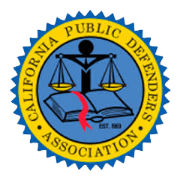Facing assault charges in California can be a daunting experience. The legal system’s complexities and potential consequences make understanding California assault charges explained crucial for anyone accused. Whether you’re dealing with a simple misdemeanor or a more serious felony charge, knowing your rights and the intricacies of the law is essential. California law defines assault as an unlawful attempt to commit a violent injury on another person, coupled with the present ability to do so. This definition, found in California Penal Code Section 240, may seem straightforward, but the nuances of assault charges can be complex. One common misconception is that physical contact must occur for an assault to take place.
In reality, the mere attempt or threat of violence can constitute assault. For example, if someone raises a fist as if to strike another person but doesn’t follow through, this action could still be charged as assault. The severity of California assault charges explained can vary widely depending on the circumstances.
Factors such as the identity of the victim, the use of weapons, and the extent of any injuries can all influence how a case is charged and prosecuted.
Table of Contents:
- Types of Assault Charges in California
- Factors That Can Influence Assault Charges
- Legal Defenses Against Assault Charges
- The Legal Process for Assault Charges in California
- Long-Term Consequences of Assault Convictions
- Recent Changes in California Assault Laws
- FAQs about California Assault Charges Explained
- Conclusion
Types of Assault Charges in California
Understanding the different types of assault charges is crucial when navigating the legal system. California law recognizes several categories of assault, each with its own set of penalties and potential defenses.
Simple Assault
Simple assault is the most basic form of assault charge in California. It’s typically charged as a misdemeanor and can result in up to six months in county jail and a fine of up to $1,000. While these penalties may seem less severe compared to other charges, a conviction can still have lasting consequences on your personal and professional life.
Assault with a Deadly Weapon
Assault with a deadly weapon, defined under Penal Code 245(a)(1), is a more serious offense. This charge applies when an assault is committed using a weapon or an object that could cause great bodily harm. The penalties for this offense can be severe, including up to four years in state prison for a felony conviction. This is also when a restraining order may be issued to the defendant.
Assault on a Public Official
Assaulting certain public officials, such as police officers or firefighters, can lead to enhanced penalties. These charges are often prosecuted more aggressively, reflecting society’s interest in protecting those who serve the public. If bodily injury occurs, then this charge becomes even more severe.
Factors That Can Influence Assault Charges
When it comes to California assault charges explained, several factors can influence how a case is handled by the courts:
- The severity of any injuries sustained by the victim.
- Whether a weapon was used in the alleged assault.
- The defendant’s prior criminal history.
- The identity and status of the victim (e.g., a protected class or public official).
- The location where the alleged assault took place.
These factors can determine whether an assault is charged as a misdemeanor or a felony, a distinction known as a “wobbler” in California law. Understanding how these elements play into your case is crucial for developing an effective defense strategy. Often times, these types of cases are brought in front of a criminal jury.
Legal Defenses Against Assault Charges
When facing assault charges in California, having a strong defense strategy is crucial. Experienced criminal defense attorneys often employ several common defenses, depending on the specifics of the case:
Self-Defense or Defense of Others
One of the most common defenses in assault cases is claiming self-defense or defense of others. California law recognizes the right to use reasonable force to protect oneself or others from imminent harm. However, the force used must be proportional to the threat faced. This is an important distinction that is examined heavily by the criminal justice system in the Los Angeles County and across the state of California.
Lack of Intent
Assault charges require that the defendant acted willfully. If it can be shown that the alleged assault was accidental or that the defendant lacked the intent to cause harm, this could serve as a viable defense. The burden of proof will be on the defense attorney to prove this.
Mistaken Identity
In some cases, defendants may argue that they were wrongly identified as the perpetrator of an assault. This defense often relies on alibis, witness testimony, or physical evidence that places the defendant elsewhere at the time of the alleged incident. It’s important to note that sometimes, what seems like minor charges can lead to major penalties like being added to the sex offender list.
Consent
In certain situations, such as contact sports or medical procedures, consent can be a defense against assault charges. However, this defense has limitations and doesn’t apply to all types of physical contact. These are some of the many complexities when it comes to criminal law in California.
The Legal Process for Assault Charges in California
Understanding the legal process is crucial when California assault charges explained are at play. Here’s a general overview of what you can expect:
- Arrest and Booking: The process typically begins with an arrest, followed by booking at a local law enforcement facility.
- Arraignment: This is your first court appearance, where you’ll be formally charged and enter a plea.
- Pre-Trial Proceedings: This phase involves various hearings, motions, and negotiations between your defense attorney and the prosecutor.
- Trial: If a plea agreement isn’t reached, your case will proceed to trial, where a jury will determine your guilt or innocence.
- Sentencing: If convicted, the judge will determine your sentence based on various factors, including the severity of the offense and your criminal history.
Throughout this process, having a skilled criminal defense attorney by your side is invaluable. They can guide you through each step, protect your rights, and work towards the best possible outcome for your case.
Long-Term Consequences of Assault Convictions
The repercussions of an assault conviction can extend far beyond any immediate legal penalties. Understanding these long-term consequences is crucial when considering how to approach your defense:
Employment Challenges
A criminal record can make it difficult to find employment, especially in fields that require background checks. Many employers are hesitant to hire individuals with violent offenses on their record. It will be very important to work with a defense lawyer to understand how to navigate this if you are convicted.
Housing Difficulties
Landlords often conduct background checks and may be reluctant to rent to individuals with assault convictions. This can significantly limit your housing options.
Professional Licenses
If you hold a professional license or certification, an assault conviction could jeopardize your ability to practice in your field. Many licensing boards have strict ethical standards that exclude individuals with certain criminal convictions.
Immigration Consequences
For non-citizens, an assault conviction can have severe immigration consequences, potentially leading to deportation or inadmissibility. This is one area of California law that has very little room for error.
Personal Relationships
The stigma associated with an assault conviction can strain personal relationships and affect your standing in your community.
Given these potential long-term impacts, it’s crucial to take assault charges seriously and seek experienced legal representation to protect your future.
Recent Changes in California Assault Laws
California’s legal landscape is constantly evolving, and assault laws are no exception. Recent changes have focused on addressing specific types of assault and adjusting penalties:
| Year | Change | Impact |
|---|---|---|
| 2020 | Enhanced penalties for assault on healthcare workers | Increased fines and potential jail time |
| 2021 | Expanded definition of “deadly weapon” in assault cases | More objects now qualify, potentially leading to more severe charges |
| 2022 | Increased focus on rehabilitation for first-time offenders | More diversion programs available as alternatives to traditional sentencing |
These changes highlight the importance of staying informed about current laws when dealing with assault charges. An experienced attorney can help you understand how recent legal developments might affect your case. There are also instances when California law may differ from federal crimes.
FAQs about California Assault Charges Explained
What are the charges for assault in California?
Assault charges in California can range from misdemeanors to felonies, depending on the circumstances. Simple assault is typically a misdemeanor punishable by up to 6 months in county jail and a fine of up to $1,000. More serious forms of assault, such as assault with a deadly weapon or aggravated assault, can be charged as felonies with penalties including up to 4 years in state prison. The charges for assault also depend on if it’s considered domestic violence or not.
What is the lowest charge of assault?
The lowest charge of assault in California is simple assault, which is generally charged as a misdemeanor under Penal Code 240. This is the basic form of assault and carries the least severe penalties compared to other assault charges. Although the charges may not be as severe, the impact can still be huge to your future.
Is pushing someone assault in California?
Pushing someone can be considered assault in California if it meets the legal definition of an unlawful attempt to commit a violent injury on another person. However, the specific circumstances, including the force used and the intent behind the action, will determine whether it’s charged as assault or potentially as battery. An example of this would be if you caused great bodily injury to the person you pushed.
What is the difference between assault and battery in California?
In California, assault and battery are distinct offenses. Assault is defined as an attempt to use force against another person, while battery involves the actual use of force or violence against someone else. Essentially, assault is the attempt or threat of violence, while battery is the completion of that violent act. In some cases, you could even be charged with both at the same time.
Conclusion
Navigating the complexities of California assault charges explained can be challenging, but understanding your rights and the nuances of the law is crucial. Whether you’re facing a misdemeanor simple assault charge or a more serious felony accusation, the potential consequences can be life-altering. It’s essential to approach these charges with a clear understanding of the legal process, potential defenses, and long-term implications. Assault crimes are taken very seriously, even more so than other violent crimes in California.
Remember, each case is unique, and the outcome can depend on various factors, including the specific circumstances of the alleged assault, your criminal history, and the quality of your legal representation. If you find yourself facing assault charges in California, don’t hesitate to seek experienced legal counsel. A skilled attorney can help you navigate the complexities of the legal system, protect your rights, and work towards the best possible outcome for your situation.




